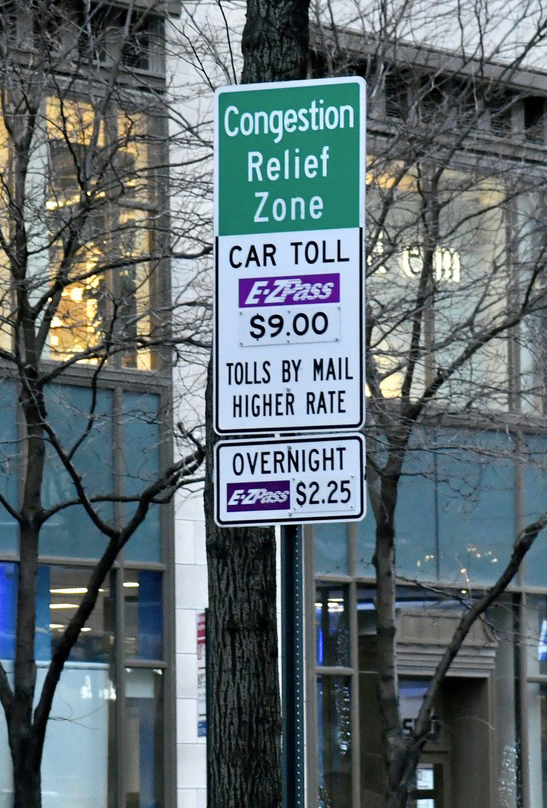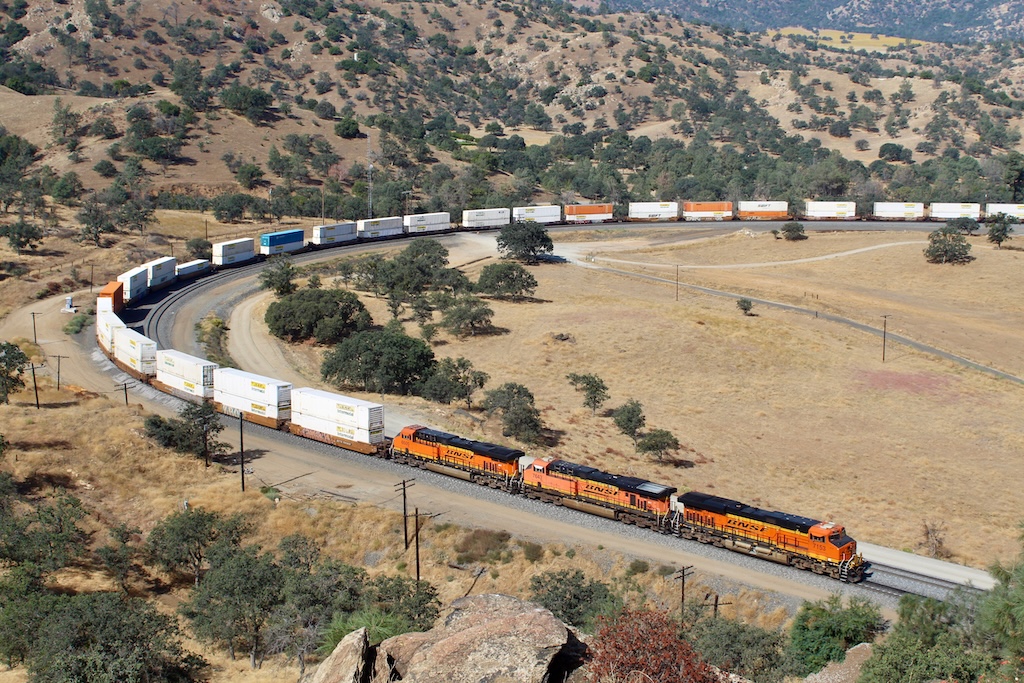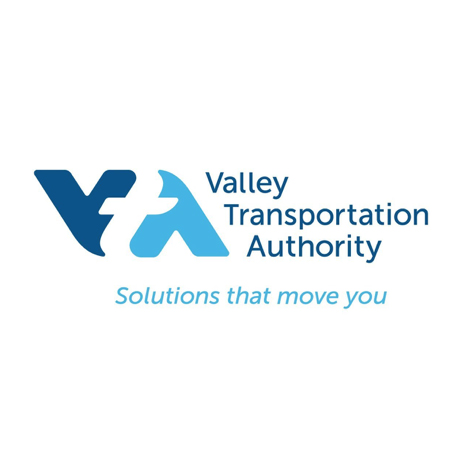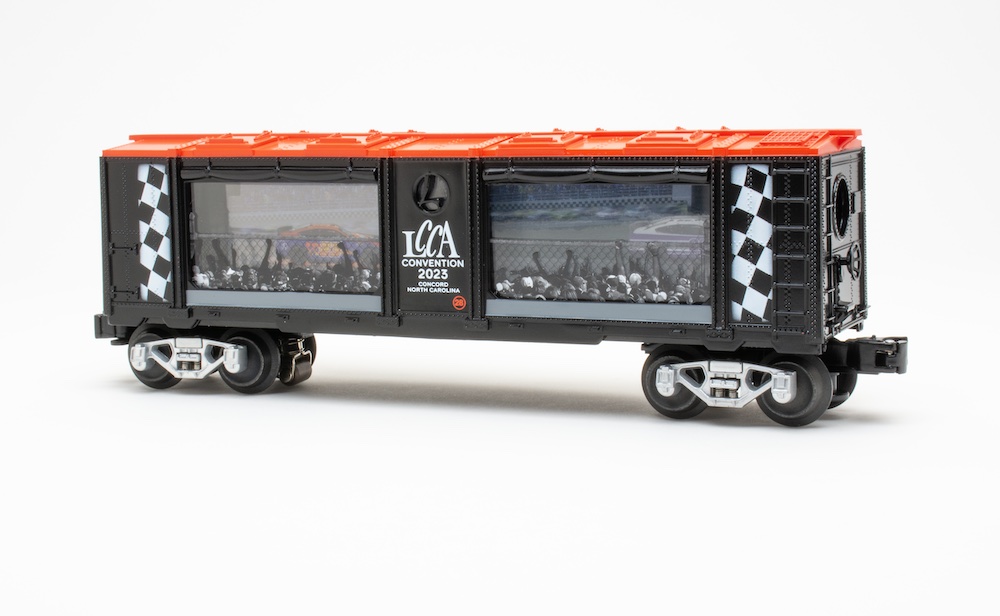The report was produced under the aegis of the Boston Green Ribbon Commission at the request of Mayor Marty Walsh. Looking at transportation, buildings, electric power generation, and waste, it outlines options to get Boston to its goal of becoming carbon neutral by mid-century.
About a third of greenhouse gas emissions in Boston are from transportation, with private vehicles accounting for three-quarters of that. Every workday, the peak morning commute hour sees 400,000 people in motion to widely-dispersed destinations across the region. While most of those trips originate outside city limits, with 36 percent on public transportation, reverse commutes have become common. Nearly 100,000 people head out of the city to work, with three-fifths driving.
The city’s Go Boston 2030 mobility plan, issued in 2017, envisions adding 35 new urban rail miles. New Green Line, Orange Line, and Red Line rail vehicles are entering service this year as part of the MBTA’s five-year, $8 billion capital investment program. But even with an expanded and upgraded transit system, getting commuters out of their cars will require a culture change, the report finds.
“The transportation system is both a dynamic and interlinked system,” says Michael Walsh, tech lead on the report and a professor at BU’s Institute for Sustainable Energy. “One of the key takeaways from our report is that a number of different strategies need to be pursued both aggressively and synergistically.”
Boston needs to shift most travel from private cars to transit, biking, and walking. To accomplish that, Walsh says it will require incentive pricing, expanded and faster public transportation, and focusing future development around transit hubs.
One option from the report is a 50-percent fare discount for those who drive to a commuter rail station and free rides for those who walk or bike to the station, coupled with congestion pricing, parking or other fees to encourage mode shift. Boston city councilor Michelle Wu recently penned an opinion piece in the Boston Globe calling for free public transportation, in response to the Massachusetts Bay Transportation Authority’s newly proposed increases for commuter rail, bus, subway, and ferry fares to go into effect July 1.
The agency is undertaking a two-year study, known as the Rail Vision project, to identify which commuter services riders most want, and which will be most cost-effective.
Alternatives includes frequent bi-directional rail service to better serve outbound commuters, express service to key stations, electrification of one or all lines, and introduction of electric multiple-unit or diesel multiple-unit equipment. An open house is scheduled for March 5.
Walsh says that electrifying the MBTA’s commuter rail lines is “a good opportunity for the regional transit system to both decarbonize and improve service.”
Next up, in March, will come more detailed reports looking at the policies that would be needed to implement the recommended strategies. Without investment in transit, the report concludes that traffic congestion will soar and socially vulnerable communities — low income, seniors, those with disabilities, and others — will struggle to get around.
“As we enter a new era of our city’s history, we’re planning for storms, climate change, and the environmental threats the next generation will face,” Walsh said in a news release.
He said plans to update Boston’s climate action plan and engage with communities and partners on the recommendations in the Carbon Free Boston report.
CORRECTION: Michael Walsh is a Boston University professor at the Institute for Sustainable Energy. He was incorrectly identified in an earlier version of this report. Feb. 19, 2019, 4:12 p.m. Central time.















The biggest reason cities are such an outdated and unsustainable civil model is that people don’t want to live anywhere near where they work. It’s not because people love to commute. It’s because cities are so poorly managed, designed, and built that the quality of life is below the standards of civilization. Politics refuses to address these issues, so they continually become more and more tyrannical taking away your rights and freedom to force their broken ideas on you. Make the cities livable again, if that is even possible, and people will move closer to where they work and reduce the overwhelming burden on transportation.
The problem is not carbon–life can not exist without it. What we have is a moron-based economy, which is not sustainable.
Lots of negative commenters here . . . who do not seemed to have actually taken a look at the report.
The transit improvements endorsed are upgrades to the former New Haven “Fairmont Line” (aka the “Dorchester Branch”) that are already underway. And two limited stop bus routes (one from North Station to the Seaport district that was once New Haven’t Boston yards and now becoming GE’s world headquarters). That’s it.
More noteworthy is the call for increased transit ridership. Boston’s transit market share is 34% if my memory is correct. That’s down from when I lived there 20 years ago – at that point it was 40%. The plan’s goal is to boost market share back to that 40% share. Although it doesn’t go into details about how to do so, it is a pretty achievable goal.
The significance of this report is not in big infrastructure visions – it is a shift in policy direction to explicitly encourage a lower carbon footprint.
The only thing that I can add to the two comments below is that if this plan comes to fruition I’m glad I will be dead in 2050. What a bunch of idiots these university people are. If they take away our ability to drive our cars then the jobs and the majority of people will move out of the city. Then again maybe that is what they are trying to accomplish but if everyone is gone who’s going to pay for their carbon-free utopia? Of course there is climate change. Our climate has been changing since the earth began. A zillion years ago where I am sitting in Maine the ground was covered in snow and ice. Oh wait…
A question for Charles, how many zeros in zillion?
Charles.. That’s because universities are filled with communists. They’re teaching these kids that ownership is a negative, and relinquishing ownership, and private rights are a positive… Now I’m not against public transit where it makes sense…Yet public transit is being used to further such agendas..
What a load of BS. The only reason for this carbon fiasco is to increase the power of government. Who’s going to pay for all of this? That’s easy, they’ll just steal more from the taxpayers ( the middle class). Maybe they should implement the final solution for carbon. Kill the population of Boston, then the carbon footprint will be 0.
Never since the Salem Witch Trials have so many Americans bought into so much group-think stupidity.
I’m all for transit (and have ridden MBTA zillions of times), but if anyone thinks that transit can replace cars or that replacing cars will accomplish what the authors of this study say, they’re nuts.
Save us from the universities. No where in America is their as much stupidity as on a college campus. I’d know. I spent six years in universities listening to dum-dums.
Instead of a university, ask people who know something. Maybe a plumber, maybe a house painter, maybe the man who picks up your garbage once a week. Talk to those people, you might learn something useful.
Great city to walk in.Spent nearly 24 years of my life in that town.
Hmm….after reading these comments it amazes me that democrats are rail fans. Starting with steam locomotives (my favorite) burn coal (except some oil burners) & democrats hate coal. Next we have diesel locomotives which of course burn diesel. Diesel being a product produced by big oil & democrats hate big oil companies. Democrats want to end all fuel burning vehicles in 10 years as announced last Friday & democrats starting jumping on to that bandwagon.. If the railroads were all electrified, I doubt there would be enough solar power to meet the power needs of the railroads. If the railroads went to LP gas – that would require hauling Lord knows how tanker cars behind the locomotives to feed say 4 locomotives. I’ll stop here. Nothing personal to any one person – I am simply pointing out what is common knowledge.
Good thing we spent how many odd billions on the Boston Big Dig in the 70’s and 80’s. Maybe we can undo all of the landfills in the 1800’s that connected greater Boston so it can go all natural again. Samuel Adams where are you?
In your dreams !!!!!!!!!!!!!!!!!!!
William, not only do I sound like Donald Trump, I voted for him. Not my first choice for sure, tenth out of ten in the Republican primaries, but the very worst Republican (Trump) is what stood between me and living under what the other party had to offer.
Save me from the “educated, innovative, upscale and dynamic” people on the east coast you reference.
The best minds I knew in my years in the work force went to universities like Purdue, Valpo, Michigan Tech, U-Detroit Mercy, North Dakota, U-Wisconsin Platteville, etc. All through my work career I was the only Ivy League graduate I even knew. When I described to my co-workers the “education” I got in the Ivy League, they were horrified.
Am I negative? Yes about the fools at the university who did the “carbon” report. No, I’m not negative about the MBTA. On various topics that have come up on this forum, I’ve praised MBTA up and down. MBTA’s problem is that parts of it were built earlier than newer systems in other cities, so it can’t handle the customers it now attracts.
I have never criticized transit. I believe it was only a couple of days ago I posted that I have ridden metros (in other words full subway/ elevated, more than just streetcars or trolleys) in Montreal, Edmonton, Toronto, London, Cleveland, Chicago, San Francisco, Boston, New York, Newark (PATH train) and Washington, and have yet to have a negative experience. Add in buses, streetcars, commuter trains, the Detroit people mover, I could add in another twenty cities at least.
Transit is about moving people, getting them where they want to go. Not about telling them how to think or where to live.
Charles: Wait just a minute. You’re sounding like Donald Trump. Statements such as your’s just undermine your credibility. We must remember cities developed to facilitate contact and personal communication between people before we had the technology that subsequently evolved. Knowledge is dispersed when people were in close contact with one another. Why do you think Amazon chose New York and D.C. over so many alternatives. They want their personnel in contact with many other educated, innovative, upscale and dynamic people. So, if we want people in close contact to facilitate intellectual cross fertilization we need urban areas. The personal auto is not designed for nor does it facilitate a densely settled environment. We need public transit and Boston’s transit was built for another era. It is simply inadequate. I recently jogged from the Boston Expo center in South Boston to North Station 15 minutes faster than the MBTA covered the same distance earlier that day. Cut the dreamers a little slack and rain in the gratuitous criticism. You will have more creiditability if you were not so negative. Let’s have some positive thoughts.
Bill McDonald
The only thing the green nuts learned is not to make predictions for the near future when we all live long enough to see it didn’t happen. They have been wrong 114 out of 117 times & counting. Now they make predictions 50+ years into the future so we won’t be around to say they were wrong AGAIN. Maybe 50 years from now the greenies will be scaring us with the next ice age.
GERALD, if you don’t believe Fox News maybe you should check out TRAINS-MAG. You’re just a click or two away. Bon chance!
FIrst off, let’s get the story straight, Gov. Newsom is not cancelling HSR in California, but of course, if you believe Fox News you’ll believe anything. Second off, he’s going to finish the Merced to Bakersfield portion and get that up and running, tabling the rest for the future(probably the next Governor after his one term in office).
Hey guys, just read foxnews.com. California just cancelled HSR.
Hey guys, I’m all for trains, and I’m the first to credit California for what it has done with Amtrak. I’m against stupidity.
Ed Lucuyer, MBTA is the heart of a great system. The Red Line is the best of its generation. The Silver Line shows some forweard thinking. The Blue Line and the Orange Line are okay. The Green Line would be okay if it had one-third of its ridership, it’s a victim of its own success. Let’s have transit that moves people where they want to go. Drop is nonsense of the jihad against carbon. Without carbon, we’d be living like the animals in the forest. Even the cavemen burned carbon.
“Boston needs to shift most travel from private cars to transit, biking, and walking. To accomplish that, Manville says it will require […] climate change”.
There. Now it makes sense. Skip the fluff about improving transit in Boston (some of the ideas presented are actually pretty good.)
No significant portion of the population is going to bike or walk in Boston during the Winter without radical global warming. Glad they are planning for it. 🙂